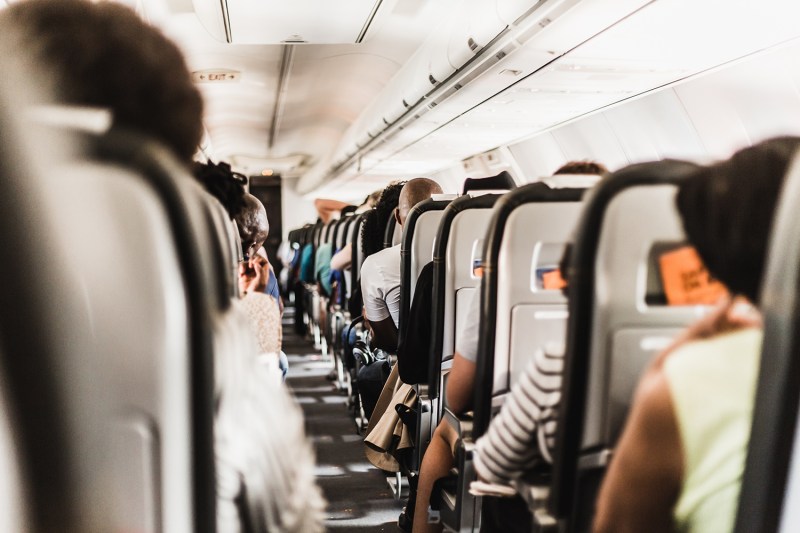
You don’t need anyone to tell you how awful it feels to be cramped, tired, hungry, and uncomfortable on a plane. But why is it so distressing? Here’s what happens to your body on a long-haul flight (and any flight) and why you really should (but probably won’t) skip that third Bloody Mary en route.
Your Sense of Taste is Diminished
No one is going to argue that airplane food isn’t awful. However, airlines aren’t entirely to blame. A study by Lufthansa found that cabin pressurization and bone-dry, in-flight air evaporates nasal mucus, causing our sinus membranes to swell. Combined, this makes it more difficult to discern the subtle scents that are critical to our sense of taste. In particular, our sense of salty and sweet dulls by up to 30 percent at altitude. This makes the job of airline chefs (yes, that job actually exists) particularly challenging, which is why they frequently taste-test their meals in simulated high-pressure environments or on real-world flights. It’s also the reason why big, bold spices are often used to punch-up the flavor profiles of airline food.
Oxygen Deprivation Makes You Sleepy
Modern airplane cabins are designed to simulate an elevation of 6,000-8,000 feet. As any climber or mountaineer can attest, this can result in dizziness, sleepiness (or sleeplessness in some individuals), and an overall dulling of mental acuity.

The lack of movement, especially on long-haul flights, only exacerbates the effect by slowing the flow of blood (and therefore oxygen) throughout your body. This is all the more reason why it’s critical to get up and walk around every hour or so while airborne.
Your Skin Takes a Real Beating
That same recirculated air that dries out your nasal cavity is brutal on your skin too. Thankfully, over-the-counter body lotions and balms can combat this. It’s also why airline employees who fly frequently double-down on their water consumption while on the job. However, an especially nasty side effect for those same employees — and frequent flyers — is that many are twice as likely to develop melanoma. This is believed to be due to the insufficient ability of airplane windows to block out harmful UV rays.
You Get Very, Very Gassy
The forces in a pressurized airplane cabin will cause intestinal gas to expand. This can leave you feeling bloated, full, and cramped, and can be made worse with certain foods. Doctors agree that the best thing you can do is … let it out. Holding it in can lead to severe pain and intense bloating. That same gas can also expand and cause pain in your ears, which aren’t always able to pressurize fast enough. Other bodily cavities are susceptible as well, including the space between your teeth and gums and your sinuses. For allergy sufferers, the latter can be especially painful.
There’s not much you can do to avoid these effects, but your experience can be made a little easier by stocking up on the right travel accessories. If you find yourself stuck overnight at an airport instead of a plane, here’s the best way to snag some shut-eye.
Article originally published August 11, 2017.



